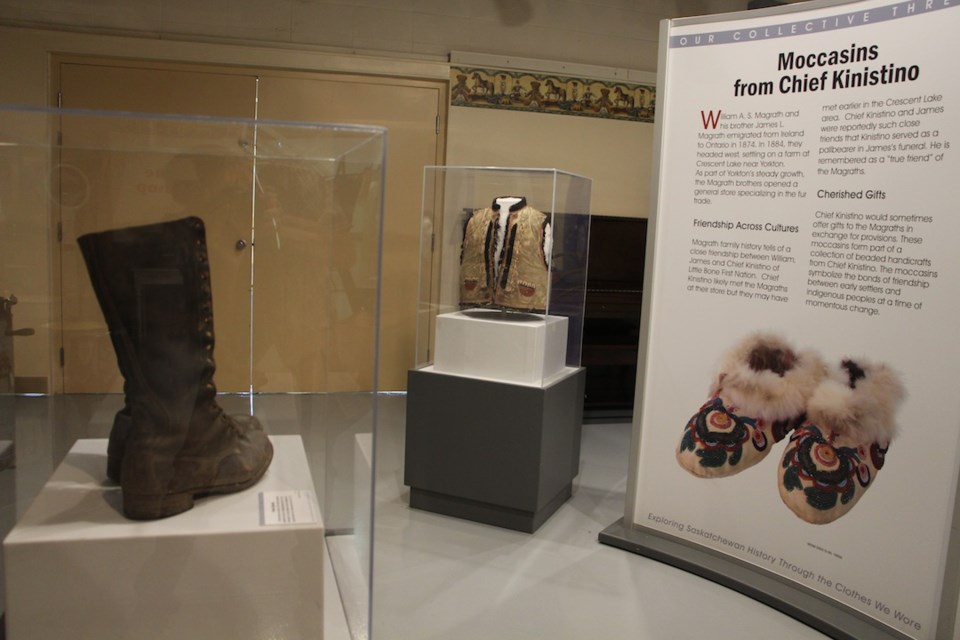What we wear can define us, and what people wear through history, whether they’re wearing it for work or leisure, can tell us something about the lives they lead. Our Collective Threads is a new travelling exhibit at the Western Development Museum in Yorkton explores clothing from Saskatchewan’s past and present, and the stories behind it.
The exhibit is a mix of artifacts and life-sized photographs. Carla Madsen, acting manager at the WDM, explained that the photographs allow people to see artifacts that would otherwise sit in the archives. These articles of clothing are extremely delicate due to their age and condition, so they are otherwise reluctant to move them and put them on display, but the photographs allow people to see what they have.
“You can tell from the life-sized photograph their delicate nature. If you look at these gowns, with the silk and the lace, the amount of handling they can withstand is very minimal. This can show the general public the collection we have and are working to preserve.”
There is a mix of working clothes, clothing worn for sports, and clothing that was more formal. Each garment comes with a story, such as a fancy dress owned by a woman who soon fell on hard times after the death of her husband.
“It’s an example of how likely life could change, especially for women who depended on the income of their husbands,” said Madsen.
There are Yorkton connections to some of the exhibits. The moccasins owned by Chief Kinistino tells the friendship between him and the McGrath brothers in Yorkton.
“The moccasins are a symbol of the bonds of friendship between them.”
There is also a sheepskin vest that was owned by a Ukrainian immigrant that settled near Veregin.
Clothes show what people did and the events in their lives. They tell the stories of immigration, wars, personal hardship and triumph. There are garments from the first world war as well as new clothing to show how clothes can be used as a tool for social awareness.
“Clothes say a lot about you as a person. What your style is, what you do for a living. For example, we have a life-sized photo of PotashCorp coveralls that were worn. That’s an important role somebody in the province plays in every day life and work of people here,” Madsen said.
Some garments are also presented with a minimal amount of cleaning in order to accurately represent how they were worn at the time, such as work boots which remain dirty.
“Enough to show the amount of work that this particular pair put in,” Madsen said.
Our Collective Threads will be at the Western Development Museum until October 1. There will also be a chance to view the exhibit during the Threshermen’s Show and Seniors Festival on August 4 and 5.



